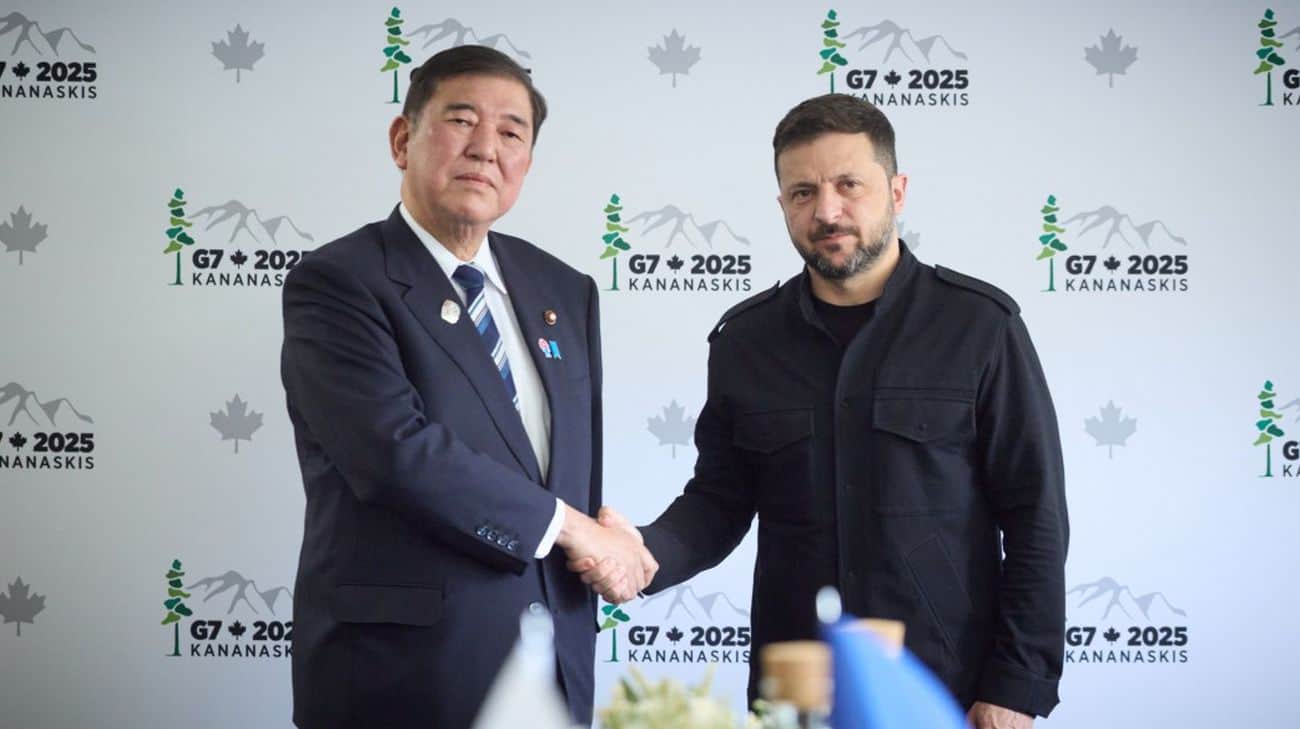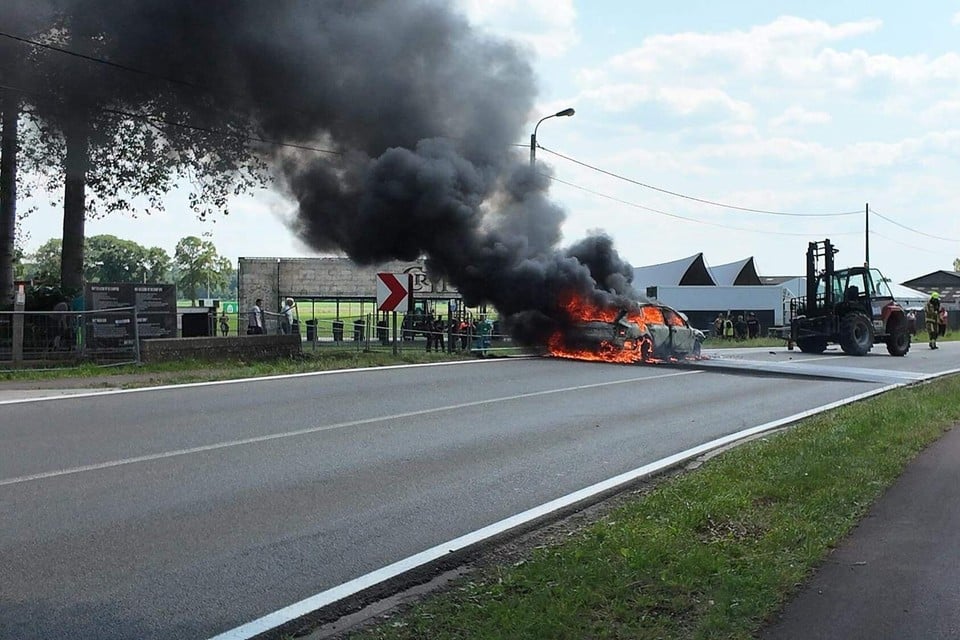Liesbeth Coltofs ‘Mother Courage’ has an unexpected, breathtaking twist
:format(webp)/s3/static.nrc.nl/wp-content/uploads/2025/04/16153044/data130910849-76d19c.jpg)
A single mother tries to survive with her three children in a war zone. One by one she loses all three children. In short, that is the horrific plot of ‘Mother Courage and her children’, the famous anti-war piece from 1939 by the German playwright and director Bertolt Brecht (1898-1956). In her new staging, at the National Theater, director Liesbeth Koltof gives Brechts classic, just before the end, an unexpected, breathtaking twist.
Mother Courage Is a complicated piece to direct. A mother who loses her children usually makes so much impression that the political message that the Brecht to do was easily buried under that tragedy. A few times Brecht rewrote the piece. He always made the title character a tooth to onempathic, in the hope that the public would be so less caught by compassion, and would consider more attention to the problematic political system for which Courage Model stood.
Mother Courage is a trader. With her children and her car with merchandise, she pulls through occupied areas in an unpleasant war. (At Brecht that is the Thirty Years’ War, Coltof based itself on the adaptation of the English Anna Jordan, who was fine with the characters about a so -called grid To move, where places have been replaced by numbers.) Her merchandise, at Coltof tin beer and civilians, wears to soldiers. If it is a blue Monday peace, Courage does not know where to search. It must be war to make ends meet.
Read also
« The more anti -Semitism grows, the more Jewish I become. » Tamar van den Dop hopes that people guard their softness
Beautiful balance
In her staging, especially after the break, Coltof finds a handsome balance between emotion and system criticism. In ten scenes she presents us an earthly Tamar van den Dop, punk-like outfit, who, as a courage, puts the molars on each other to guide themselves and her children through that war through that war. Koltofs always reminds you that this mother and her children not only represent herself, but stand for all mothers, all children, in war zones. Who, just like Courage, are forced to join a system in which profit is priority over humanity, and in which war is more lucrative than peace. This is how a war maintains itself. « Sometimes I have the feeling, » says Courage, « that I drive my car through hell and sell the wood myself to keep the fires burning. »
The performance is not completely balanced. The need to play this piece is not constantly felt, some scenes, especially in the first half, feel somewhat compensatory. It can be felt during two inserted dance solos. Accompanied by drums and synthesizer from Duo Spill Gold, dancer Pepe Rollema seems to turn his own neck in a lurid choreography. Dancer Daley Monte flies over the playing floor as if he is being thrown back and forth by invisible hands, his half -naked body defenseless against the forces that act on him. They are these kinds of boys’ bodies, you realize, who are recruited, mutilated and killed on the assembly line all over the world, as if it were disposable products.
/s3/static.nrc.nl/images/gn4/stripped/data131194982-906572.jpg|https://images.nrc.nl/38yLEwcJriSTaeeYd2NQakdy-EQ=/1920x/filters:no_upscale()/s3/static.nrc.nl/images/gn4/stripped/data131194982-906572.jpg|https://images.nrc.nl/6eMoONfNv7Ta0URLLVvl5cEp6CY=/5760x/filters:no_upscale()/s3/static.nrc.nl/images/gn4/stripped/data131194982-906572.jpg)
Photo Bart Grietens
Lucid
The most impressive role in the play is that of the non-speaking daughter Kattrin, which is incredibly beautifully played by an almost unearthly lucid Yela de Koning. In her package made from bicycle in the tires, with bleached short coupe, she steps around with wide eyes over the play floor, while she is the only one of all the characters to try to do the good. She hopes for peace, says Courage, who has given her a life « with a man, a child, a corner sofa » in prospect.
It is this cattrin with whom Coltof Brechts gives a wave. Children who die in a war are not ‘collateral damage”, Is the message that Koltof makes loud and clear on this, with which she refers, among other things, to the current violence in Gaza. In Brecht’s piece, the two warring camps are exchangeable. Coltof places here, just before the end of the show, her firm cavors: sometimes it is important to be the scene. must have had in mind, thanks in part to the phenomenal interpretation of Yela the King: the emotional is politics.

:format(webp)/s3/static.nrc.nl/images/gn4/stripped/data133811978-a9debb.jpg)
/s3/static.nrc.nl/images/gn4/stripped/data133819638-a0c401.jpg|https://images.nrc.nl/jZMjGFqXocoPaU7aFcYHvRuHjZs=/1920x/filters:no_upscale()/s3/static.nrc.nl/images/gn4/stripped/data133819638-a0c401.jpg|https://images.nrc.nl/jQSvjyNRTk-kDjWDXKfbUMMva0A=/5760x/filters:no_upscale()/s3/static.nrc.nl/images/gn4/stripped/data133819638-a0c401.jpg)
:format(webp)/s3/static.nrc.nl/images/gn4/stripped/data115078479-01c7cd.jpg)



